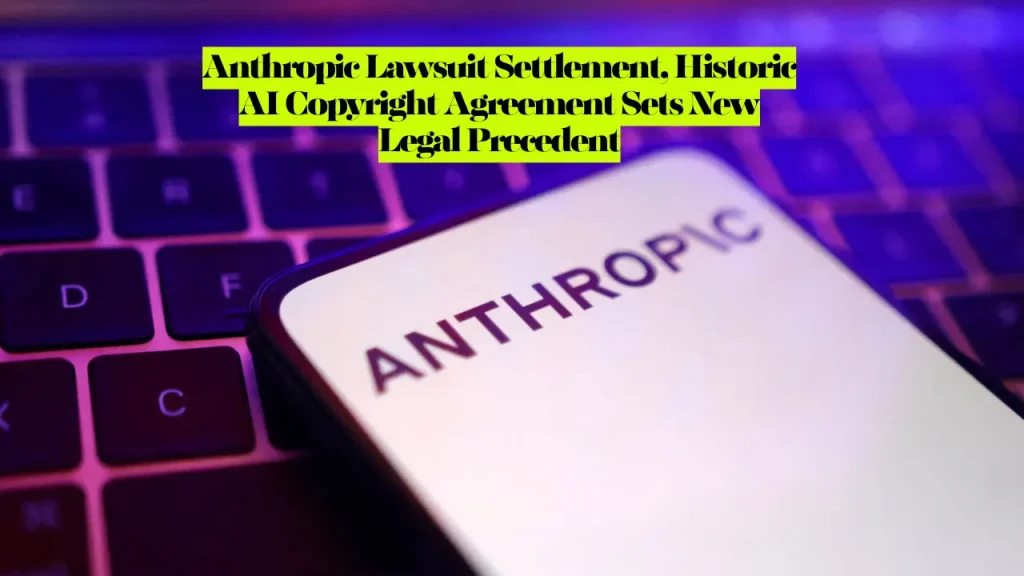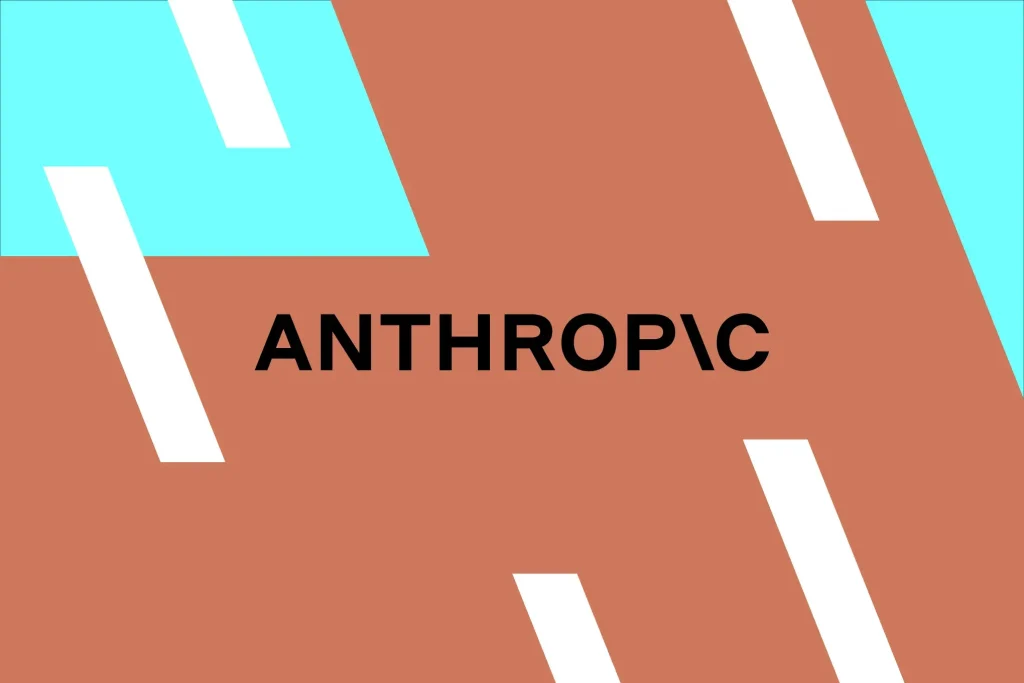Anthropic Lawsuit Settlement, Historic AI Copyright Agreement Sets New Legal Precedent
In a historic development that could fundamentally change how artificial intelligence companies operate, Anthropic has reached a class-wide settlement agreement with book authors who accused the company of copyright infringement. This Anthropic lawsuit settlement represents the first major resolution in the wave of copyright litigation targeting AI companies for their training practices.
The settlement marks the first resolution in a string of major industry lawsuits that have challenged the legal boundaries of AI development. For legal practitioners, content creators, and technology companies, understanding this settlement’s implications is crucial for navigating the evolving landscape of AI law.
Table of Contents
Background: The Bartz v. Anthropic Case Explained
The Legal Foundation
The case, officially known as Bartz v. Anthropic, centers on Anthropic’s use of books as training material for its large language models. The lawsuit emerged from growing concerns about AI companies’ data collection practices, particularly their use of copyrighted materials without explicit permission from authors.
Authors and publishers filed a class action copyright lawsuit against Anthropic over its use of pirated books to train its large language models. This legal challenge struck at the heart of how modern AI systems are developed, questioning whether current practices constitute fair use or outright copyright infringement.
The Timeline of Legal Proceedings
The case gained significant momentum throughout 2024 and early 2025. Initially, a federal judge ruled in Anthropic’s favor in the landmark copyright infringement lawsuit, potentially opening a pathway for AI companies to train large language models on copyrighted works without authors’ consent — but only if copies of the works were obtained legally.
However, the legal landscape shifted dramatically when the AI firm bowed to pressure and settled just weeks after the initial ruling. On August 26, 2025, the parties notified the Court that they had reached a settlement in principle on behalf of the Class, with a Settlement Agreement filed with the Court on September 5, 2025.
Related Legal Matters: Shein Settlement Claim Form, Deadlines are Approaching Complete Step-by-Step Instructions Filing Your Claim

Key Legal Claims and Arguments
Copyright Infringement Allegations
The authors’ primary legal argument centered on unauthorized reproduction and distribution of their copyrighted works. They argued that Anthropic’s training process involved creating copies of entire books without permission, which exceeded the boundaries of fair use.
The plaintiffs specifically challenged:
- Mass digitization of copyrighted books
- Use of complete works rather than excerpts
- Commercial benefit derived from copyrighted content
- Lack of transformative purpose in the copying process
Anthropic’s Defense Strategy
Anthropic’s legal team initially pursued several defense strategies:
- Fair use doctrine application to AI training
- Transformative use arguments
- Emphasis on legally obtained source materials
- Technical arguments about data processing versus copying
The company’s legal position was partially vindicated by the initial federal court ruling, which found that Anthropic didn’t break the law by training its chatbot Claude under specific circumstances.
Settlement Terms and Implications
What We Know About the Agreement
The terms of the settlement were not disclosed, but it could impact the future litigation of the use of copyrighted material in training models. While specific financial details remain confidential, legal experts suggest the settlement likely includes:
- Monetary compensation for affected authors
- Licensing agreements for future use of copyrighted materials
- Procedural changes to Anthropic’s data acquisition practices
- Potential revenue-sharing mechanisms
Legal Precedent Establishment
This historic settlement will benefit the broader creative community by establishing new standards for AI training practices. The agreement sets important precedents for:
- How AI companies must approach copyrighted content
- Compensation mechanisms for content creators
- Legal frameworks for future AI development
- Industry standards for data acquisition
Impact on the AI Industry
Immediate Consequences for AI Companies
The Anthropic lawsuit settlement creates immediate implications for other AI companies facing similar litigation. Companies like OpenAI, Google, and Meta are currently defending against comparable copyright infringement claims.
The settlement suggests that:
- AI companies may need to budget for content licensing
- Training data acquisition requires more careful legal review
- Settlement may be preferable to prolonged litigation
- Industry practices must evolve to address copyright concerns
Long-term Industry Changes
This settlement likely signals a fundamental shift in how AI companies approach training data. Future AI development may require:
- Explicit licensing agreements with content creators
- Revenue-sharing models with copyright holders
- More restrictive training data selection processes
- Enhanced legal compliance frameworks

Related AI Copyright Litigation
The Anthropic settlement doesn’t occur in isolation. The AI industry faces numerous similar legal challenges:
OpenAI and Microsoft Cases
Multiple lawsuits target OpenAI and Microsoft, including cases from The New York Times, The Intercept, and Raw Story Media. These cases raise similar questions about copyright infringement in AI training.
Music Industry Litigation
Sony Music Entertainment, Universal Music Group and Warner Records filed lawsuits against AI song-generator start-ups Suno and Udio in June 2024 for alleged copyright infringement, demonstrating how copyright challenges extend beyond text-based AI.
Broader Legal Landscape
The AI copyright litigation landscape continues evolving, with new cases emerging regularly. Legal practitioners must stay informed about developments across multiple jurisdictions and content types.
For more insights on related AI legal issues, explore our coverage of AI Hallucinations in Legal Practice and Data Privacy Violations in Tech Companies.
What This Means for Authors and Publishers
New Rights and Protections
The settlement establishes important precedents for content creators:
- Recognition that AI training can constitute copyright infringement
- Potential for compensation when works are used without permission
- Leverage in future negotiations with AI companies
- Legal pathways for protecting intellectual property
Practical Steps for Content Creators
Authors and publishers should consider:
- Reviewing existing contracts for AI usage rights
- Understanding their rights under copyright law
- Joining class action lawsuits when appropriate
- Negotiating licensing agreements with AI companies
Legal Analysis: Expert Perspectives
Fair Use Doctrine Evolution
The settlement reflects evolving interpretation of fair use in the digital age. Traditional fair use analysis considers:
- Purpose and character of the use
- Nature of the copyrighted work
- Amount and substantiality of the portion used
- Effect on the market for the original work
AI training challenges these traditional frameworks, requiring new legal approaches.
Commercial Impact Assessment
The commercial implications extend beyond immediate settlement costs. AI companies must now factor ongoing licensing expenses into their business models, potentially affecting:
- AI development timelines
- Product pricing strategies
- Competitive positioning
- Investment valuations
Future Legal Developments
Pending Legislation
Congress is considering various AI regulation proposals that could affect copyright law application to AI training. Potential changes include:
- Explicit AI training exemptions
- Mandatory licensing requirements
- Enhanced author protections
- Industry-specific regulations
Regulatory Responses
Federal agencies are developing guidance on AI copyright issues. The U.S. Copyright Office has initiated studies on AI’s impact on copyright law, which may influence future legal interpretations.
Frequently Asked Questions
What is the Anthropic lawsuit settlement?
The Anthropic lawsuit settlement resolves the Bartz v. Anthropic class action case, where authors sued Anthropic for using their copyrighted books to train AI models without permission. The settlement agreement was filed with the court on September 5, 2025.
How much was the settlement amount?
The terms of the settlement were not disclosed. Settlement amounts in class action cases are often kept confidential, but the agreement likely includes both monetary compensation and operational changes.
What legal precedent does this set?
This marks the first settlement in a string of major industry lawsuits involving AI copyright infringement. The precedent suggests AI companies may need to compensate content creators for training data use.
How does this affect other AI companies?
The settlement provides a roadmap for resolving similar disputes and suggests that AI companies may find settlement preferable to prolonged litigation. Companies facing similar lawsuits may accelerate their own settlement negotiations.
What rights do authors have regarding AI training?
Authors retain copyright protection over their works, and this settlement affirms that AI training can potentially infringe those rights. Authors can pursue legal action when their works are used without permission for commercial AI training.
Will this change how AI models are trained?
The settlement likely will influence industry practices, potentially requiring AI companies to obtain explicit licenses for training data or implement more restrictive data selection processes.
Conclusion: A New Era for AI and Copyright Law
The Anthropic lawsuit settlement represents a watershed moment in AI legal history. This historic settlement will benefit content creators while establishing new frameworks for AI development.
For legal practitioners, understanding this settlement’s implications is crucial for advising clients in the evolving AI landscape. The agreement demonstrates that copyright law remains relevant and enforceable in the AI era, while also suggesting pathways for constructive collaboration between AI companies and content creators.
As the legal landscape continues evolving, staying informed about developments in AI copyright law becomes increasingly important for all stakeholders. This settlement marks not an ending, but the beginning of a new chapter in balancing innovation with creator rights.
The precedent set by this case will undoubtedly influence future litigation and regulatory approaches, making it essential reading for anyone involved in AI development, content creation, or intellectual property law.
Sources:
- U.S. District Court filings in Bartz v. Anthropic
- Federal Appeals Court rulings
- Legal analysis from intellectual property experts
- Industry reporting from major news outlets
About the Author

Sarah Klein, JD, is a licensed attorney and legal content strategist with over 12 years of experience across civil, criminal, family, and regulatory law. At All About Lawyer, she covers a wide range of legal topics — from high-profile lawsuits and courtroom stories to state traffic laws and everyday legal questions — all with a focus on accuracy, clarity, and public understanding.
Her writing blends real legal insight with plain-English explanations, helping readers stay informed and legally aware.
Read more about Sarah
